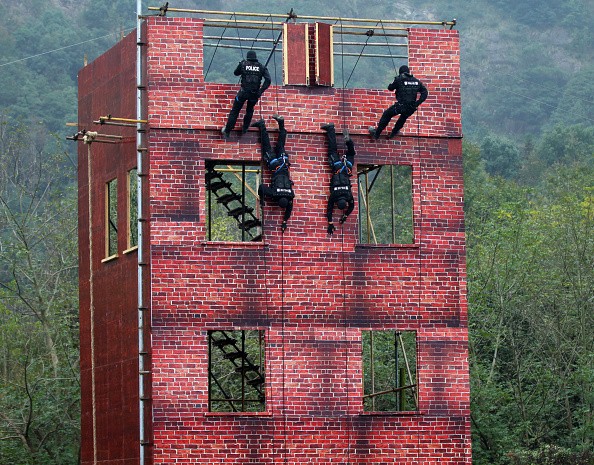China’s lawmakers on Monday have started to review draft legislation on the country’s first counter-terrorism law.
The draft, slated for its third reading at the ongoing bimonthly session of the National People's Congress (NPC) Standing Committee in Beijing, is China's latest attempt to address terrorism within its borders and to help maintain world security, according to a report by China Daily on Tuesday.
One notable addition in Monday's text is an updated definition of the term "terrorism."
According to the new draft, terrorism is defined as "any proposition or activity that, by means of violence, sabotage or threat, generates social panic, undermines public security, infringes personal and property rights, and menaces government organs and international organizations with the aim to realize certain political and ideological purpose."
In a statement, the NPC Standing Committee said that the new definition "had been informed" by a Shanghai Cooperation Organization (SCO) counterterrorism convention and the U.N.'s Declaration on Measures to Eliminate International Terrorism.
An earlier version of the draft, which was submitted in February, did not cover personal and property rights or political and ideological purpose.
"[China] opposes all extremism that seeks to instigate hatred, incite discrimination and advocate violence by distorting religious doctrines and other means, and acts to eradicate the ideological basis for terrorism," the new draft read.
Another clause prohibits institutions or individuals to fabricate and disseminate information on forged terrorist incidents and report on or disseminate details of terrorist activities that might lead to imitation, nor publish scenes of cruelty and inhumanity in terrorist activities, eliciting a critical response from Western governments and media.
Details on hostages, personal details, of on-scene workers, and how authorities respond to terror incidents are also forbidden to be reported unless it is with approval from counter-terrorism authorities.
According to the NPC Standing Committee, the clause was specifically revised to prevent the distribution of terrorism-related information on social media.
The new draft also included details on emergency states and extraordinary measures to be taken in cases of terrorist attacks involving biological weapons and particularly severe incidents.
China currently does not have anti-terrorism laws, although related provisions feature in various NPC Standing Committee decisions, as well as in various laws enacted in recent years.
The NPC Standing Committee had previously passed a decision in Oct. 2011 to reform the country's anti-terrorism policies, but it was never made into law.
The lack of a systematic anti-terror law has hampered China's fight against terrorism, with analysts saying current measures are simply not effective enough.
In a recent incident, 29 people were killed and scores more wounded by knife-wielding assailants at a train station in Kunming, the capital of Yunnan Province, in March 2014.
These attacks have brought greater urgency to create and implement a counterterrorism law, the China Daily report said.
It is rare for a law or an amendment in China to go through three readings and fail to pass. One exception was the property law, which passed in March 2007 after eight readings.
The draft law is already "quite mature and should be put forward for approval", the NPC Standing Committee said in a statement.



























